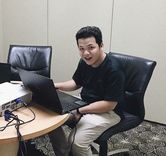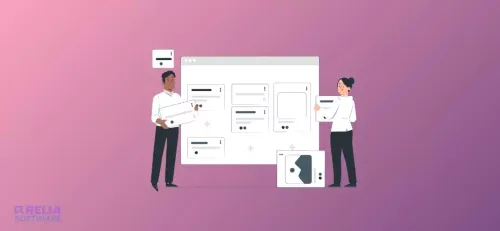Table of Contents
Artificial Intelligence (AI) has changed practically every industry worldwide, for the better. This innovative technology has space for improvement, but organizations that don't adopt it will fall behind. In the next several years, “AI in software testing” will become the norm in the QA business, transforming software testing thinking and practice.
This article will give you a detailed breakdown of AI in software testing as its definition, working method, benefits, challenges, etc.
What is AI in Software Testing?
Artificial Intelligence (AI) in software testing is how it automates and improves testing using intelligent algorithms and machine learning to ensure quality and functionality.
Manual testing has always been used to verify software for defects and guarantee it works properly. However, software complexity and faster release cycles have pushed traditional testing approaches to their limits. That's why AI revolutionizes the game here. Imagine a smart tool that learns, adapts, and analyses program behavior to spot flaws. In short, Intelligent automation to speed testing and increase software quality is AI in software testing.
>> Read more:
-
End-To-End Testing: Definition & Best Practices
How Does AI Work in Software Testing?
AI does not suddenly replace human testers; rather, it functions as a powerful partner. Here's a look at how AI works in software testing.
Learning from Data
AI algorithms are educated on massive volumes of data, such as past test results, user behavior patterns, and software code. This data serves as the foundation for AI's decision-making capabilities.
Pattern Recognition
AI excels in detecting patterns in data. Artificial intelligence can foresee prospective problems and identify opportunities for development by analyzing program behavior and user interactions.
Automation of Repetitive Tasks
Artificial intelligence automates arduous and repetitive processes like regression testing and data validation. This allows human testers to focus on more complicated and strategic testing activities.
Continuous Learning and Improvement
AI is a dynamic system that is constantly learning and improving. As it encounters new data and test results, it improves its algorithms and becomes more efficient at discovering and addressing software bugs.

Different Types of AI in Software Testing
Several AI-driven testing automation technologies improve testing speed, accuracy, and adaptability. There are 3 types of applying AI in software testing.
Self-Healing Autopilot
AI-powered self-healing automation updates test scripts without operator intervention. It helps when application code changes frequently, breaking test scripts. This keeps the test script accurate and current, saving maintenance time.
Regression Automation
Regression testing takes a lot of effort to confirm that new features have not impacted the functionality of the feature of the software. Code-change-based test automation using AI has transformed this approach. This reduces regression testing time and improves efficiency, allowing teams to focus on more sophisticated and creative software development.
Defect Analysis and Scheduling
AI-driven defect analysis predicts code issues using machine learning. It prioritizes test cases by defect likelihood, letting testing teams focus on key areas. This optimizes testing efficiency by testing the most critical application areas. Testing resources are efficiently scheduled to ensure proper testing.
Benefits and Challenges of AI in Software Testing
Benefits
AI brings a wave of good changes to the software testing industry. Let's look at the important advantages that will transform your testing procedure.
Improved Efficiency and Speed
Imagine a world in which repetitious test activities run automatically. AI-powered automation takes care of these boring activities, freeing up your testers' time for more strategic ones. AI can run tests in parallel, considerably speeding up the testing process. Furthermore, concepts like as self-healing tests, which correct themselves when minor errors occur, and AI-powered test case development improve efficiency.
Enhanced Test Coverage
Human testers have limitations. However, artificial intelligence is capable of thinking outside the box. It can detect edge situations and investigate a considerably broader range of possibilities than manual testing can.
This comprehensive coverage assures that your program has been thoroughly tested against a wide range of probable scenarios. Furthermore, AI's capacity to learn from previous tests enables it to constantly improve its strategy and test coverage over time.
Reduced Costs and Resources
Streamlining testing processes results in cost savings. AI speeds up software releases by automating monotonous processes and expediting testing cycles. This equates to lower development costs and a shorter time-to-market.
Improved Defect Detection
Human testers are excellent, but they sometimes overlook minor flaws or specialized data patterns. However, AI systems excel at analyzing large amounts of data. They can detect patterns in user behavior and software performance that human testers might miss. This strong eye for detail enables AI to spot potential errors more accurately, resulting in a higher-quality software product.
Challenges
Even though AI has a lot of benefits for software testing, it's important to be aware of the problems that still need to be solved. Here are some important problems to think about:
Limited Test Design Capabilities
AI is currently very good at automating existing test cases and finding trends within parameters that have already been set. However, AI still has a hard time making brand-new test cases from scratch. With their creative problem-solving skills, human testers are still needed to make thorough test plans and define the overall testing scope.
Big Data and Bias
AI is only as good as the data it learns from. Incomplete or biased data sets can cause wrong results and unfair ways of testing. For AI to work well in software testing, it's important to make sure that the training data is high-quality and accurate.
Problems with Implementation and Integration
It can be hard to add AI to testing processes that are already in place. To use AI successfully, businesses may need to spend money on new tools, infrastructure, and staff. Also, training and a shift in culture towards a collaborative testing setting are needed to get testing teams ready to work with AI.
Best Practices of AI-Powered Testing
AI in software testing needs a strategy to maximize its potential. Here are some best practices for a smooth implementation:
Define Testing Goals
Before using AI, remember to set testing goals. What are your goals? Increased test coverage? Faster turnaround? Set goals to guide your AI implementation and identify the correct tools and tactics.
Choose the Right AI Tool
Each AI tool has pros and cons. Assess your demands and choose an AI tool that fits your testing goals and development environment. Consider usability, scalability, and integration while choosing.
Prepare High-Quality Training Data
AI follows "garbage in, garbage out" rules. AI testing success depends on training data quality. Focus on creating bias-free, representative test data sets. This guarantees your AI learns from accurate data and tests reliably.
Continuous Monitoring and Improvement
Remember to continuously analyze AI-powered testing results and find areas for improvement, improve training data, alter AI parameters, and keep up with AI testing technology. This keeps your AI efficient and flexible for software development.

Manual Software Testing Vs AI Software Testing
Manual testing, when humans carefully interact with software, find defects, and evaluate performance, was previously used. However, complicated software development and faster releases have enabled AI software testing. So, which one is better? This extensive comparison below will give you a comprehensive vision.
|
Criteria |
Manual Testing |
AI Testing |
|
Development Time |
Extremely time-consuming, resource-intensive, and costly. |
Saves both money and time, allowing you to ship products faster. |
|
Test Speed |
Takes longer since testers work linearly and sequentially. |
Speeds test execution. |
|
Performance |
Human testers run test cases manually. |
AI test automation tools automate tests. Little human intervention is needed. |
|
Productivity |
Low productivity |
High productivity |
|
Accuracy |
Tests can be inaccurate. Testing is prone to human mistakes. |
Test accuracy is higher than manual testing since tools monitor and automate every test activity. |
|
Coverage |
Manual testers cannot cover all test scenarios, reducing test coverage. |
High test coverage because AI tools can run many tests quickly. |
|
Parallel Testing |
Parallel testing is costly in machines, labor, and time. |
Parallel testing with automation tools lets testers execute cloud tests with fewer expenses and resources. |
|
Cost |
Manual testing is expensive since testers must be hired and trained. |
Automated testing needs AI tools and training, but it pays off over time. |
The Future of AI in Software Testing
Here are some cases of how AI can enhance software testing in the future:
-
Predictive Testing: Imagine AI proactive bug prediction. Advanced machine learning will identify defect-prone locations using previous data and user behavior. Developers can anticipate and resolve issues with this proactive approach.
-
Self-Healing Tests: Future tests may automatically fix minor problems, save time, and keep test suites effective and accurate.
-
Explainable AI (XAI): AI testing decisions are currently opaque. XAI wants to make AI decision-making transparent. This will help testers understand why AI detected an issue and trust it.
-
Integration with Agile Development: Testing must keep up with Agile development's quick speed. AI will automate testing and provide constant feedback in Agile operations.
-
Focus on Non-Functional Testing: AI will address performance, development security, and scalability in addition to functional testing. This will give a broader software quality picture.
-
AI Testing Democratisation: Advanced AI testing technologies may become more user-friendly and accessible to more testers. This will enable AI benefits for non-experts.
>> Read more:
-
What is Generative AI? 5 Best Generative AI Tools in 2024
-
Top 17 Best AI Apps For Individuals and Businesses in 2024
Conclusion
AI in software testing is more than simply a buzzword or a new fad. It's a game-changer. Its benefits are numerous, ranging from increased test coverage and accuracy to risk reduction and faster timeframes. By implementing AI-driven testing technologies, you may improve the quality of your software products while also optimizing their development processes.
>>> Follow and Contact Relia Software for more information!
- testing
- development




